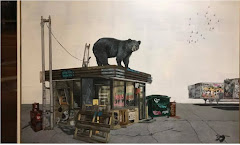Early in the life of this blog, I acknowledged that its title was inspired by the now defunct Catholic Legion of Decency, created in 1933 by the American Roman Catholic Church, with the stated goal of "purifying cinema".
In supporting this initiative, Pope Pius XI uttered one of my favorite quotes, "Everyone knows bad movies are bad for the soul". Although his Holiness and I would likely disagree on exactly what kind of movie might damage your eternal soul.
The goals of that original Legion were not far removed from those of the zeolots who knocked the penises from statuary in Ancient Rome or the village priest in "Cinema Paradiso", pre-screening all the movies coming to town and ringing his little bell to signal which moments must be edited out before they were shown.
The Legion saw and rated all films distributed in the United States from 1933 to 1980, either giving them an "A" for being "morally unobjectionable", rating them a "B" as "morally objectionable" or in many cases "C" for "Condemned".
From their pulpits, Catholic Priests would admonish their flocks of the hellfire and damnation which might come their way if they dared to watch a condemned film.
Explaining the intellectual process by which films became condemned would take a doctoral thesis -- of which there are several if you choose to look them up. Suffice it to say, the quality or intent of any given film took a backseat to ideology and a suspicion of its true motives.
Much like a lot of the reaction to stuff you innocently post in your Facebook feed.
Among the films condemned in 1933 were such innocuous entertainments as "Flying Down To Rio" and classics like "Queen Christina". Other cinematic touchstones would follow, from "Black Narcissus" to "M", "Rififi" and "Some Like it Hot".
Studio executives and theatre owners being who they were (and often still are) bent over backwards to appease the Legion and the Church, often making edits or relegating films that had been rated poorly to less patronized theatres. Sometimes their distribution was cancelled altogether.
With few speaking out against them, the Legion further flexed its muscle. In 1960 alone, they condemned "Breathless", "Never on Sunday", "Psycho" and "Spartacus".
And these modern day penis whackers would go on to condemn "From Russia With Love", "The Odd Couple", "The Producers" and "The Rocky Horror Picture Show".
By the late 1970's, with artists wresting greater control of their product from the studios, the Legion's power began to fade, but they still insisted Catholics might burn in Hell simply for viewing "Taxi Driver", "Grease", "All That Jazz" and "Used Cars".
Eventually the Legion's name changed, likely to avoid the embarrassment of some of their past condemnations. They became the National Catholic Office for Motion Pictures and were later subsumed into the Catholic Conference, their rating system quietly phased out.
During the month of March, Turner Classic Movies will spend Thursdays exhibiting the Legion's impact on film history. The full schedule can be found here.
Like the Pope and I are wont to say, "Bad movies are bad for the soul". But nothing that fits that description can be found on TCM's schedule.















